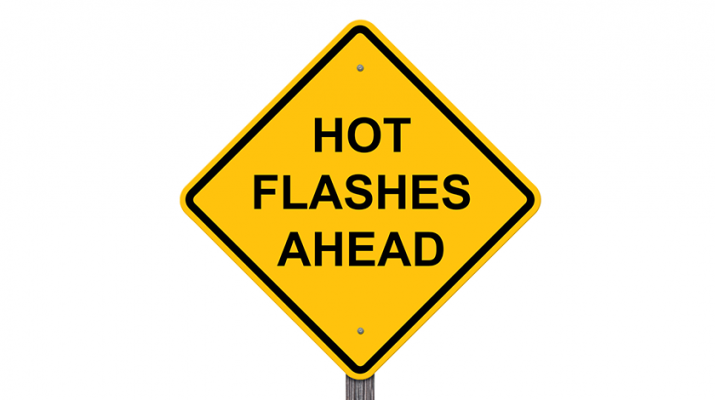Experts discuss ways women can reduce incidence of hot flashes
By Deborah Jeanne Sergeant

Chances are if you’re a peri-menopausal woman you experience hot flashes as one of the 75 percent of American women who do, according to the North American Menopause Society.
“Some hot flashes are easily tolerated, others are annoying or embarrassing and others can be debilitating,” the organization’s website states.
Physician Leila Kirdani is a board-certified in both metabolic medicine and family practice. She operates Quality of Life Medicine in New Hartford and Rochester.
She believes that stress to the body, in addition to hormonal changes, causes hot flashes.
“If we’re stressed too long and the adrenal glands struggle to supply enough cortisol, one of our stress hormones and one of the primary hormones that regulate the body, that can be experienced as a hot flash as well,” Kirdani said. “I find it important to look at where people’s stress levels are to know how best to balance their hormones.”
She believes that healthful diet, including leafy green vegetables and balancing the electrolytes — sodium, potassium and chloride — help prevent the body from being depleted at the cellular level.
Kirdani also encourages women in menopause to consider replacing their DHEA (dehydroepiandrosterone), a hormone the body produces in smaller amounts as it ages.
“If the adrenals struggle to make DHEA and cortisol and the ovaries are shutting down because of menopause, we have trouble,” she said.
She said that 25 mg. of orally dissolved DHEA in the morning supports better energy and if hot flashes are caused by low adrenals, it will help reduce hot flashes, too.
Environmental controls she recommends include medication, relaxation, “and, as I like to say, to minimize the to-do list,” Kiridani said. “Schedule in time in your week for yourself.”
Kirdani recommends menopausal patients exercise, as that helps de-stress the mind and body (many like swimming), and better stabilize blood sugar levels.
“When our metabolism is slowing down, we don’t metabolize carbs as well,” she said. “Women realize if they eat carbs before bed, they’ll have more hot flashes.”

Instead, they should eat more produce, serve meat as a side and include whole grains while eschewing processed foods.
Supplements she suggests include chaste berry, black cohosh, and dong quai, depending upon the patient.
Laurel Sterling, health educator for Carlson Labs in Arlington Heights, Ill. and a registered dietitian practicing in Canastota, recommends taking vitamin E, magnesium nitrate or magnesium glycinate, and red clover, as well as black cohosh.
“Non-gmo fermented soy products are a dietary way to get relief, like miso and tempeh,” she added. “Red raspberry leaf tea and sage tea at room temperature help.
Essential oils such as lavender extract, rosewater, evening primrose and sage provide a calming effect for some women.
Lifestyle also makes a difference. Sterling said that unmanaged stress “is the number one thing that kicks off a hot flash for many women,” she said.
Dressing in layers can help women better manage their body temperature so that as they heat up, they can peel off layers. Breathable, moisture wicking fabric can also help them stay more comfortable if they become sweaty.
At night, it makes sense to follow suit with layered blankets and keep a fan nearby.

